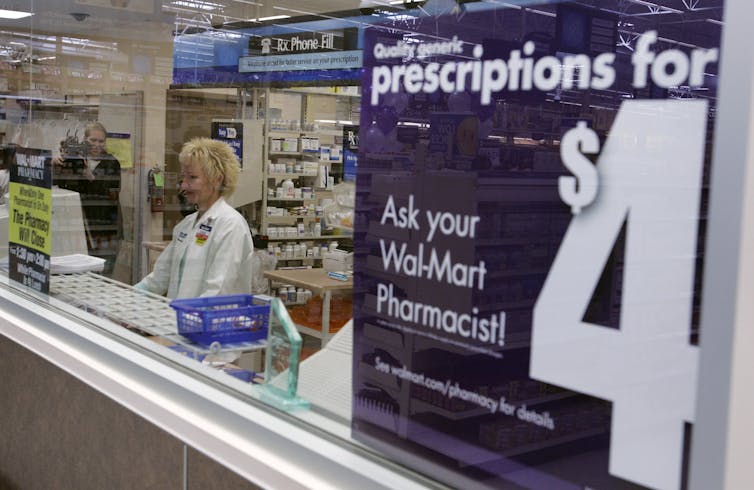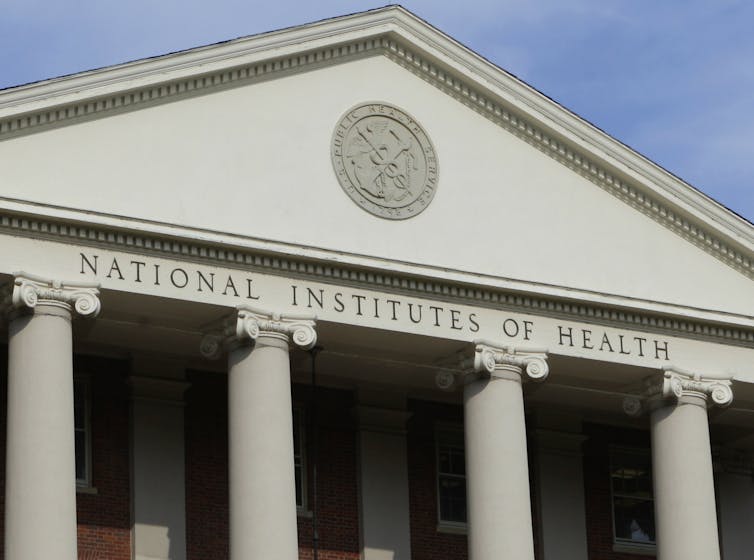Perhaps ironically, the advent of the Trump presidency could signal an even greater role for academics in shaping public policy. The president-elect has set out an ambitious agenda, but with many details left to fill in, and congressional Democrats are preparing their opposition.
The likely repeal of the Affordable Care Act and continued angst over drug prices mean health economists like us will be asked to provide answers to inform policy debates. For example, a majority of American voters believe pharmaceutical prices are too high. Less clear is what to do about it. It is here academics play an important role, helping to evaluate the impact of policies ranging from federal negotiation of drug prices to finding alternatives to the Affordable Care Act.
So it is a good time to ask: How do we know what we say we know, and can we be trusted to steer through hyper-partisanship and corporate self-interest? Research in many areas, including health economics, features partnership and collaboration between industry and academics like us. Private firms face a range of difficult questions that need answers. Does a drug work? For whom is it most valuable? Academics are trained to answer important policy questions like these.
How do academic researchers collaborate with industry?
First and foremost, we – like all professors – are bound by university and academic standards. These include making sure we continue to effectively discharge our academic responsibilities for teaching, administration and publication of findings in the scientific press. And, we’ve realized that our efforts to improve health care become more relevant when we collaborate with the private sector. The ivory tower is not always the best place to understand the social benefits of treatments, the incentives for medical innovation and how aligning prices with value can aid consumers.
To be sure, collaboration with industry supplements our income through consulting fees. But no matter who funds our research – foundations, government or companies – we apply the same template to our work. We seek to publish our results; our findings are subject to peer review; and industry sponsorships are disclosed.

How do collaborations between university and industry work?
The goal is to reframe the policy debate and raise questions not only about government action, but also the private sector. Here is an example.
In 2004, health plans were starting to raise copayments on commonly used drugs for asthma, diabetes and hypertension.
This didn’t make sense to us, since drugs for these conditions are among the most important tools to control chronic disease. Higher copayments often discourage consumers from taking their medication, and this can lead to more emergency room visits, hospitalizations or even death, from uncontrolled illness. We tried and failed to persuade the Healthcare Financing Administration – then the agency that ran Medicare – to support an intervention that encouraged the appropriate use of important medications.
Ultimately, we published a paper, funded by Merck, which showed that raising prescription drug copayments – even by as little as US$5 – could significantly reduce how often chronically ill people take medications. This paper helped elevate the issue of high drug costs into the national debate and helped stimulate a health policy discussion about how best to design the drug “formularies” that set rules for copayments, prior authorization and other processes that insurers use to influence the use of prescription drugs. It also influenced other research, with more than 500 citations, according to Google Scholar.

But more important than having other academics cite our work is the impact on policy. When Wal-Mart introduced its $4 copay for generic drugs, they cited only our article in the program announcement. The largest retailer in the country had – with one bold move – revolutionized pharmaceutical benefit design. It wasn’t long before drug copayments were coming down again for generics and other chronic disease medications across the health insurance industry.
Other researchers have also found success by collaborating with industry on research. Work by academic health economists with Pitney Bowes, for example, demonstrated similar results to ours, and has helped us understand issues as diverse as the effects of depression in the workplace. And, many new medications have been studied and tested in collaborations between pharmaceutical firms and academic researchers.
The lesson is clear: If you want to have lasting impact, private sector engagement is often one of the best ways.
This research matters, but funding lags
The importance of health economics has multiplied in recent years, as prices have risen and new – but expensive – therapies come to market.
Unfortunately, Congress has scaled back public funding for health economics research. The founding legislation for the Patient Centered Outcomes Research Institute (PCORI) expressly prohibits this agency from thinking about cost at all, because it is not considered to be of direct importance to patients.
Last year, NIH issued guidance narrowing the types of health economics research that would be funded. In keeping with PCORI’s approach, the NIH excluded research focused on the financing of health care, cost-containment strategies, the effect of prices on health care and other topics within the purview of economics.

Private nonprofit philanthropic foundations can help by providing funding for research on health care costs, but they lack the scale to solve this problem on their own. Funding from the for-profit sector – life sciences companies, health insurers, health care delivery systems, medical device and diagnostics companies, and the like – is needed to fill the gap.
We need to hold the work up to public scrutiny
The biggest concern with academic consulting is that the industry favors projects that may portray them in a positive light. This is why publication, and further scrutiny, of research results and methods is needed.
We have always welcomed that type of debate and provide a platform for it through our academic and publishing affiliations. Full disclosure of methods encourages researchers – even those funded by for-profit firms – to “get it right,” because their work will remain subject to public review and criticism long after publication. This is precisely why we have published our methods and findings in dozens of academic articles over the years.
One way to judge the success of consulting work is to see whether it opens up new areas for future investigation and debate.
Over the years, our consulting research has demonstrated how to quantify the value cancer patients place on hope of a big increase in life expectancy and the social returns to the federal government’s longstanding “war on cancer.”
We have presented evidence that private health insurers do a better job of containing fluctuations in health care costs than public insurers.
We have documented an empirical link between Medicaid’s policies towards treating serious mental illness and rates of incarceration. These studies influenced and ignited health policy debates around the world.
Academic collaboration is fed by a desire to learn from peers and colleagues, not a desire to remain in lockstep on every point. Indeed, we do not always agree with our colleagues in academia, government or the private sector. For instance, our recent proposals to step up antitrust enforcement and reduce patent protections on the pharmaceutical industry have triggered spirited debate with industry.
At a time of deep political division, an academic approach to policymaking has never been more important. We need to question each others’ positions based on the strength of the evidence. If we hold to that principle, the result is better policy for all of us.

